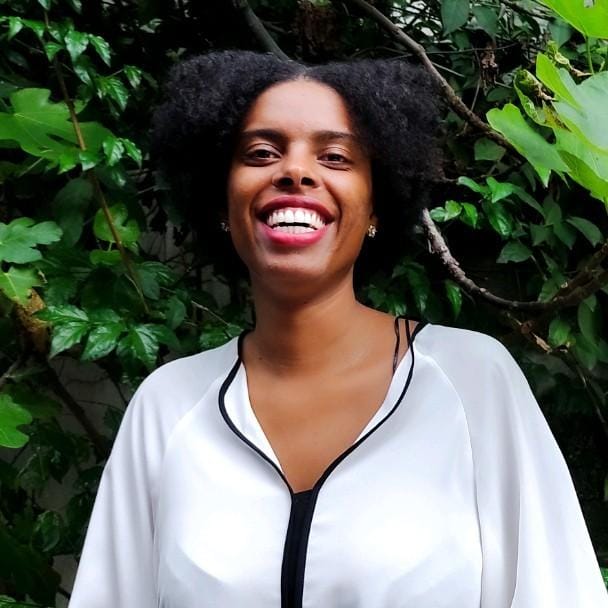A Whiteness Trap: stereotypes of blacks at the Big Brother Brazil
- Monique Prado

- 21 de jun. de 2021
- 4 min de leitura
The disagreement between two black women turns the stage for whites to say that blacks themselves are racist, when they steal our subjectivity and reduce us to stereotypes.
As long as we continue to naturalize the argue between black people within Big Brother Brasil 21, whiteness keeps its Narcissistic Pact alive as well the stereotypes about Us. Black does not have humanity and autonomy. If you are a black woman in the current situation, you have probably heard: “Are you Karol Conká, Lumena or Camilla de Lucas?” like we as black people aren't that complexity as human beings.
Welcome to the country that rapes, sickens mentally, feeds stereotypes and promotes all kinds of violence against black women, especially economic, as they are less than 01% in executive positions in the 500 largest companies. While whites go out to pursue careers, black women are still in care services at home, responsible for educating their employer's children and their own children, since almost 63% of Brazilian households are exclusively headed by black women.
When we talk about the bottom of the pyramid, we have clearly seen that black women do not dominate the structures of economic, legal and political power, as they do not occupy these layers of domination in society. However, an entertainment program tries to account for the existence of black women by capturing three or four of them to reiterate stereotypes of sexualization, insanity, rivalry and rapists, as if being quarrelsome were natural to their womanhood. It is an articulation for white women and men to be the only ones allowed to perform aggressiveness, madness and violence without being canceled.
We need to note that there is a human castration of black people, even when they express negative emotions. So whiteness wins, because when creating Manichean representations and imagery about black bodies, only the universal subject has the fullness of humanity. They can scream, they can curse, they can be out of control. Not us, we are crazy and out of control.
In racial literature, this has been studied as a way of showing that black women are much more complex than they want to pretend, even though recreational racism and advertising, cinematographic, semiotic representations of the media and entertainment illustrate them in an impoverished way.
That is why the disagreement between two black women becomes the stage for them to say "look there, blacks themselves are racist", when whites are hijacking subjectivity as unique and complex people and reducing black people to racist stereotypes.
That is why the disagreement between two black women becomes the stage for them to say "look there, blacks themselves are racist", when whites are taking the subjectivity of black people and reducing them to racist stereotypes while they, white people, are seen as unique and complex.
Meanwhile, the other white members of the house say "I have no place to speak". This is a reference to the work of Brazilian philosopher Djamila Ribeiro who brilliantly spread the topic by explaining that place of speech is much more related to “where you speak from” than “what you speak”. Whiteness cannot remain silent in racial discussions. Therefore, whiteness needs to review its privileges.
Discussions between Fiuk and Caio took place at Big Brother Brazil's house, which demonstrated the privilege, as although they became memes, they did not carry the burden of racist stereotypes, since as white men the legitimacy of the discussion only gains the dimension of "disagreement between two human beings". Even making confusion, whites maintain between them the link called by Brazilian psychologist Cida Bento de Pacto Narcissico, because certainly Fiuk, Caio, Sarah, Carla Dias, etc., white personalities of the house, do not respond for all whiteness, but only as people , which differs in the case of black people who see subordinate categories.
The scripting of each black character in the house, especially with the editions that show just a few frames of what happened throughout the day, serves to stitch these stereotypes together. In other words, what airs on open TV is just an excerpt from everyday life, making the story almost a soap opera with easily manipulated chapters.
A round of applause for whiteness that continues to operate in the same manipulative logic of pitting the slaves of the slave quarters against those of the Casa Grande in order to safeguard its position as universal ethical and moral heroine. For us blacks, the reflection remains so that we can emancipate ourselves from the look of whiteness on our bodies, especially in times of social networks where cancellation is the rule.
The scripting of each black character in the house, especially in editions that show just a few frames of what happened throughout the day, serves to reaffirm these stereotypes. In other words, what is shown on open TV is just a part of everyday life, making the story easily manipulated.
A round of applause for the Whiteness that continues to try to save its position as a universal ethical and moral heroine. For us blacks, the reflection remains so that we can emancipate ourselves from the look of whiteness on our bodies, especially in times of social networks where cancellation is the rule.






Comentários